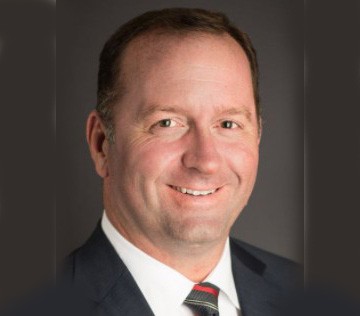On August 2nd, the voters of Shelby County resoundingly voted for Lee Harris, a law professor at the University of Memphis, a former city councilman, and the Democrats’ leader in the state Senate, to be county mayor for the next four years. Harris, who was sworn in on August 30th in a joint ceremony with other county officials, is still in the early stages of organizing his mayoralty. On Monday, he sat down with the Flyer in his 11th-floor office in the Vasco Smith County Administration building to discuss the prospect of things to come.
 Photographs by Justin Fox Burks
Photographs by Justin Fox Burks
You’re going from the position of being a minority legislative leader to being a county executive. What’s it like in those circumstances, going from one branch of government to another?
I think there’s a huge difference. I didn’t realize how big a difference there was until I got here a couple of weeks ago. You really have your hand on the lever in this office, no doubt about it, and you can effectuate change and drive a message and an agenda. That’s much better! No doubt about it.
As a minority leader in the Senate, I had a role in putting messages in the pipeline and putting the brake on some things. But here you get to set the stage for change. And before I was part-time. Now I can do this every single day, all day long, bringing beneficial change for our community. Two early examples have been the opportunity to appoint Patrice Thomas as CAO and Marlinee Iverson as county attorney.
I know you’re aware of the schism that has existed between your predecessor, Mayor Mark Luttrell, and the Shelby County Commission the last couple of years. Can you avoid something like that?
I didn’t realize how bad it was until I won the election and began the process of settling in. It’s even worse than you reported. I don’t think they got along well. I gave Mayor Luttrell high marks in terms of leadership and the team he put together, but he really fell down in terms of relating to the commission.
Like this idea, four years ago, of separate inauguration ceremonies for the mayor and the commission. There was the expectation that I was going to have a separate ceremony. I thought, “Are you kidding me? If we do, we’ll start off on the wrong foot.” This is local government, not Washington, D.C., and all of us in local government should be on the same page. [Outgoing commission chair] Heidi Shafer did a great job working with me to make a unity ceremony, bringing together a lot of stakeholders. So far we’re getting along very well.
As for why they [Luttrell and commissioners] didn’t get along, part of it was a matter of perspective. On both the 11th floor [site of mayor’s office] and the 6th floor [site of commission offices] it’s too easy to surround yourself with fans feeding your point of view. But I’ve served as a local legislative official on the city council; so I know they [members of the legislative branch] expect somebody to communicate and work with them.
Your profile on the Shelby County website notes, “He has won numerous awards because of his work in politics and government.” What awards do you take most satisfaction from?
I just won one a couple of days ago for environmental justice. I joined with others to point out contamination of water at TVA’s new power plant and got them to stop drilling. And there are only 10 states that have a law requiring pure water in public schools. Tennessee became the 10th state because of legislation I sponsored. If they find lead contaminant at a school, they’ll have to take that water out of circulation and replace it with water free from contamination. I worked with Senator Bo Watson on that one.
Then I sponsored bills, some with [Senator] Brian Kelsey, to get ourselves into the conversation on the aquifer. We got the Ground Water Control Board to start meeting and write new rules for drilling, and to work with the University of Memphis on aquifer issues. You have to make the effort to get all the stakeholders involved. In Nashville, there are a lot of stakeholders involved on issues all the time.
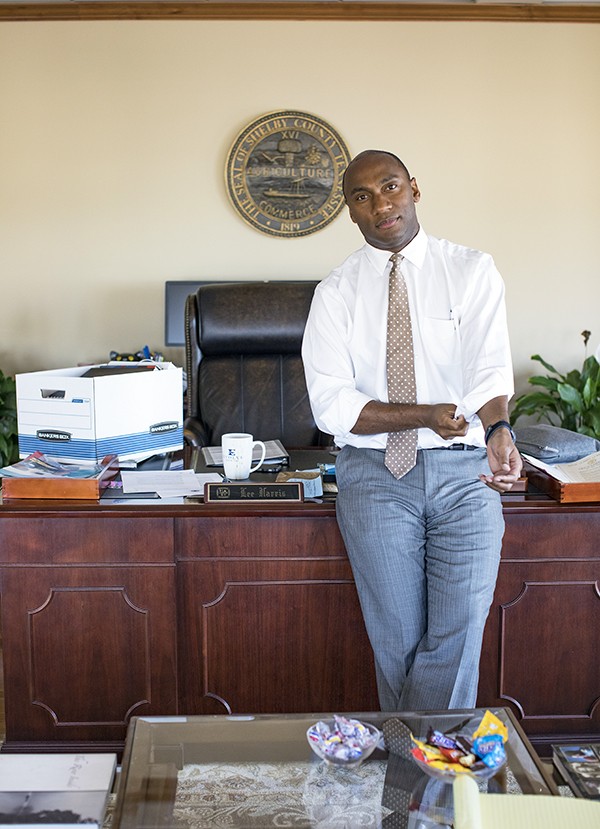
You have to deal with a lot of polarities in government, don’t you? Democrats vs. Republicans, cities vs. suburbs, blacks vs. whites, and so forth.
Yes. One of the first persons I talked to in Nashville and tried to befriend was [Representative] Andy Holt. He’s a teacher, a part-time professor, and he likes to talk about economics, and I don’t mind talking about economics. He likes to talk about Republican orthodoxy, and I love to talk about Republican orthodoxy and what they should be doing, about how they’re concentrating on giveaways instead of being true to the free market. We’ve sponsored bills together. He was skeptical of me for a long time. You can find common ground with anyone.
At your first campaign debate with Republican nominee David Lenoir, you mentioned “segregation” as a major county issue. Would you elaborate on that?
Yes, sure. De facto segregation is still with us — schools and all the major places. How do we combat it? With high-quality schools that everybody wants to go to, that create interaction. Schools like White Station and Central and some others create diversity to a certain extent, and it helps for people to grow up in diversity. When I was growing up, there was no white person in my house, ever. I lived in a segregated neighborhood. My parents and I didn’t ever encounter anybody who didn’t look like us, unless maybe a repair-person. I don’t think I really talked with anybody white until Overton High School. [Smiles ruefully] And then, of course, I went to an all-black college.
Someone has quoted you as saying you want to put $300 million into the schools. What are your plans?
Well I don’t think I said a specific number. But, yes, there’s a lot of need for more investment in our school systems. I don’t want to get into the weeds on specific structural issues. That’s one of those things that’s been a distraction for years. I’m saying that, no matter what, there’s room for investment in education. And I think everybody in the community wants to see more investment. We need both more funding and more accountability. I’m one of the few Democrats, by the way, who say we haven’t made gains fast enough. I’m not a cheerleader unless we’ve been stone-cold successful.
Is the independence of the public schools from direct control by the mayor and commission a barrier?
Yes, and the first thing I’m going to do on Monday will be to announce to the commission my intention to appoint an educational liaison officer. That’s step number one: someone to work with Shelby County Schools and the other stakeholders. Way down the line are structural and legal challenges. First we need to get everybody connected — mayor, county commission, superintendent, school boards, etc.

That sounds like something your opponent David Lenoir talked about.
Lenoir did talk about it. Oh, yeah, I got it from him. I spent a career as a [law school] teacher. The best teachers in my view are really great students. You learn things from the give-and-take of a conversation. The campaign was a great conversation, and that was a good idea. Schools are a major expense, and we need a liaison.
What persuaded you to run for County Mayor?
Two friends, Steve Mulroy and David Upton, hounded me about it. They explained to me things about this role, and I became convinced. There were two major considerations: Can you win? And the other is much more service-minded. If you win, would it really make that much of a difference? I concluded “Yes” on both fronts. Even if I didn’t win, I thought I could change the entire conversation, I knew I would force everybody else to talk about things in a totally different way.
My opponent would talk about tax cuts, people leaving the county, made-up stuff. The only way to grow your county is to make your county attractive to move into, with great schools, great neighborhoods and people, and good public transit. If I wasn’t in the race, nobody would talk about those things. And I think it was right that I could hold on to the Democratic vote and stretch out to get others better than some predecessors. Some people think that to get the urban vote you’ve got to be a certain kind of candidate, that if you’re not behind on your taxes and haven’t piled up bankruptcies, you’re not qualified. Such folk don’t think a lot of the voters. The voters want high-quality representation. I talk the same way in Collierville as I do in Orange Mound.
Lenoir did take you to task on some crime issues.
Well, criminal justice, in my view, is not a bumper sticker. There’s such a thing as being “tough on crime” for the sake of being tough — without making us safer. The “Crooks with Guns” bill he talked about, for example, giving previously convicted felons stiff penalties merely for possessing a gun. If you’ve committed a crime, I’m happy to give you 10 years [in incarceration]. If you’re asleep in town, and a weapon is found under your mattress, I’m not happy about giving you 10 years. That’s more than you’d get if you raped somebody or committed manslaughter.
And there was my opposition to the Drug-Free School Zones bill, with its dramatically stiffer penalties. I argued we should have incremental reform. My position was supported by both the ACLU and the Koch Brothers, by the way. The 1,000-foot radius of that bill swallows entire communities. Liberally defined, you’re almost always in a school zone in the city of Memphis, which means that a drug sale there can get you eight to 15 years instead of 11 to 29 months if you’re not in a school zone.
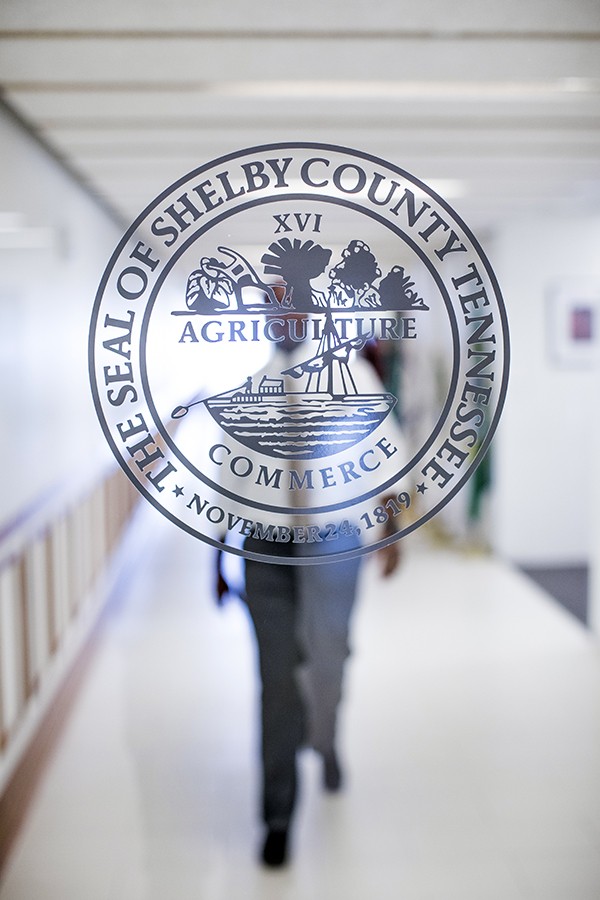
In Tennessee’s four urban counties, you’re almost always in a school zone; in the other 91, you’re almost never in one. So urban violators are penalized enormously and unfairly more than rural ones for exactly the same crimes.
Crime control should be like a three-legged stool. The first leg is arrest and prosecution. The second has to do with education and other preventive efforts to keep people from going down the wrong path. We need to emphasize pre-K, K-12, and teaching vocational skills. The third leg is re-entry. The county runs the re-entry office, and I’m going to have an announcement on that in the next 10 days. We’ve got to make sure we are meaningfully reintegrating people into the community.
Memphis Mayor Strickland has his Memphis 3.0 project. Do you envision doing something similar?
I don’t do a lot of planning, a lot of committees. I talk to people in the communities. I know what they want. In order to bring stakeholders together you may have to do some planning, but it’s not my custom. I usually vote no on them and don’t participate in any of them. Like the city council committee to rename parks when I was on the council. They formed a committee. I couldn’t believe it! What is there to talk about? I just don’t know what there is to study. You either do something or you don’t. Either you pick up the trash or you don’t. And instead of firing somebody, the school system hires a “consultant” to look into the grading scandal!
What’s your take on the current dissatisfaction with EDGE [the city/county industrial recruitment board]?
I don’t plan to get involved in that unless the county commission really desires my presence on this new task force. We do need new leadership in the Chamber of Commerce, though, and new leadership all over the place. But EDGE is a priority for special interests. Of the 950,000 people in the county, 949,000 of them do not care about EDGE — absolutely, positively do not care about this issue at all. Things that people really care about are education, health care, and transit issues.
We need to do something to improve health care and to take care of Regional One [aka The Med], our only public hospital. Utilities are a big issue for everybody, and MLGW functions as an instrument of taxation, also. Should there be voting representatives from the county at large on the MLGW board? Probably.
And the EDGE board should have some regular people on it, too, just people from the neighborhoods. It’s the quintessential special interest. PILOTs [payments-in-lieu-of-taxes as an incentive for business] surrender too much revenue. Of course, businesses come here in order to make profits. To get them here, we’ve got to make this an attractive place to live. We need to invest in neighborhoods, invest in education, workforce development. I don’t think anybody seriously thought we were in competition for Amazon.
Frankly, we could shut down EDGE and give everybody a tax cut. If you cut taxes on everybody, we’d get more investment and more economic activity. If there’s a county commissioner out there who wants to take the lead on a tax cut, have at it! I’m not taking a position, other than to say I’m not for raising taxes. Tax cuts benefit everybody. A lot of this other stuff does not register.
Going forward, I think we’re going to be talking about education, public safety, and taxes. I don’t think people want to get distracted about these sideshow issues.
Looking ahead, do you think two terms as mayor are going to be necessary?
Yes. I think there are lots of things that can be done in the short term, but lots of things, too, that are going to take more than four years.

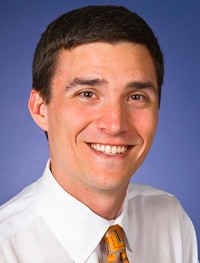
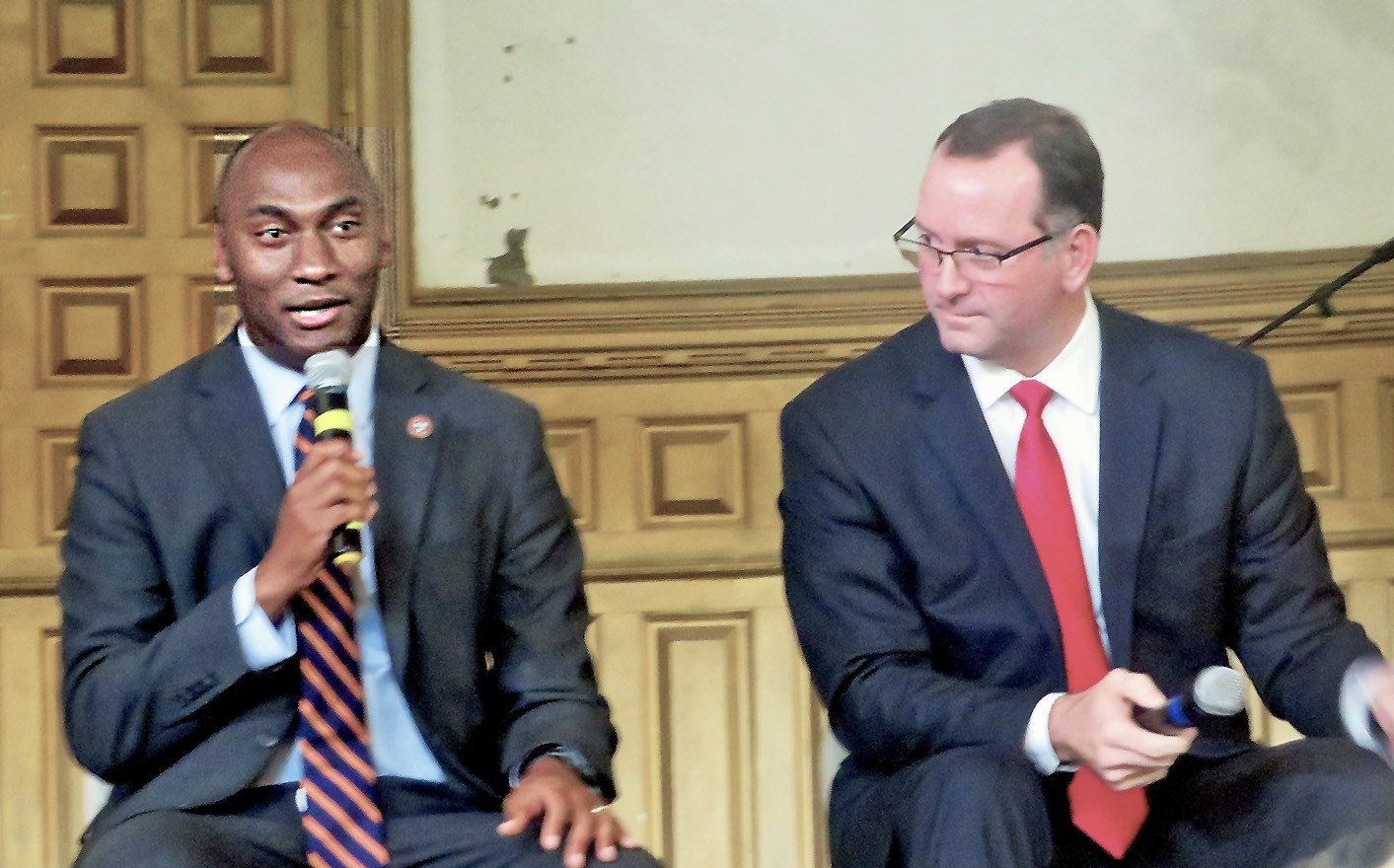
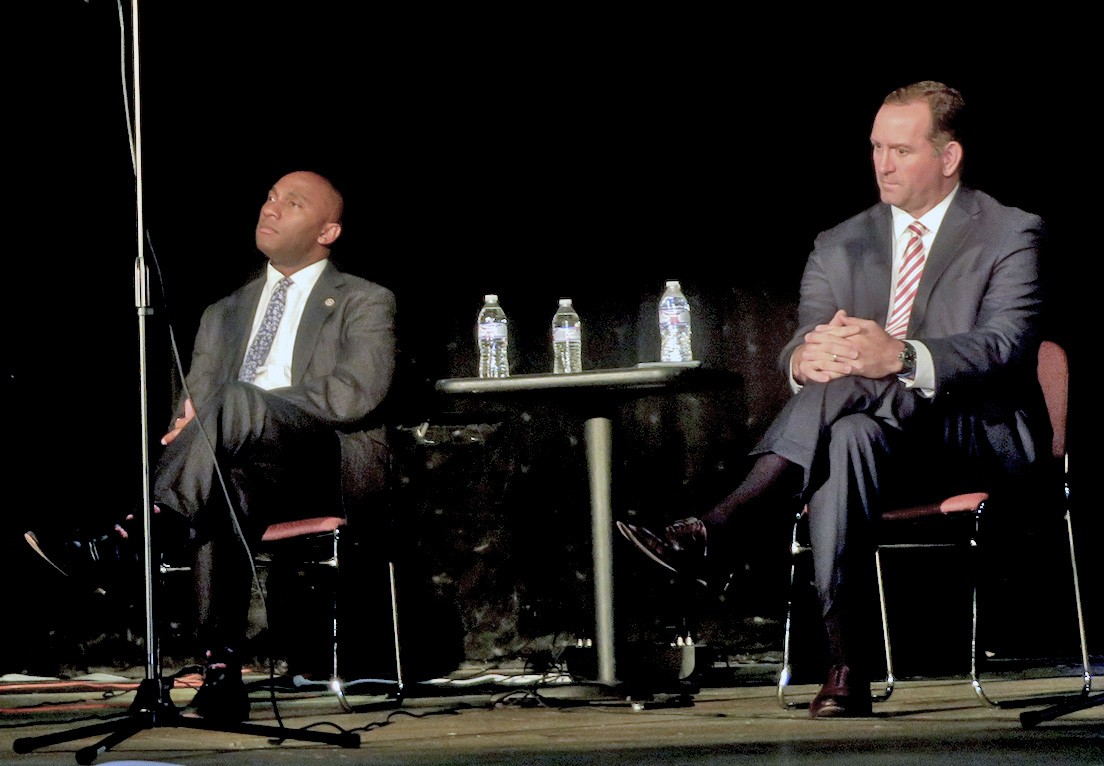 JB
JB 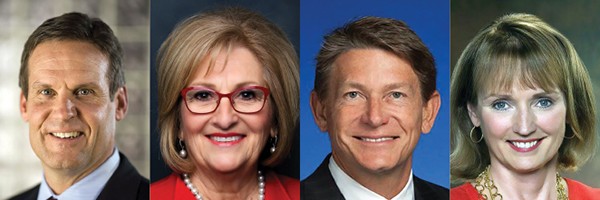

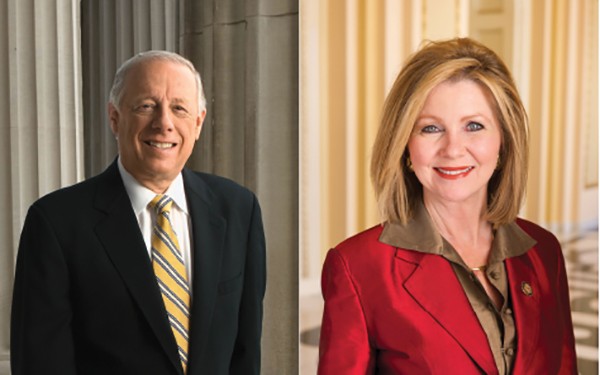
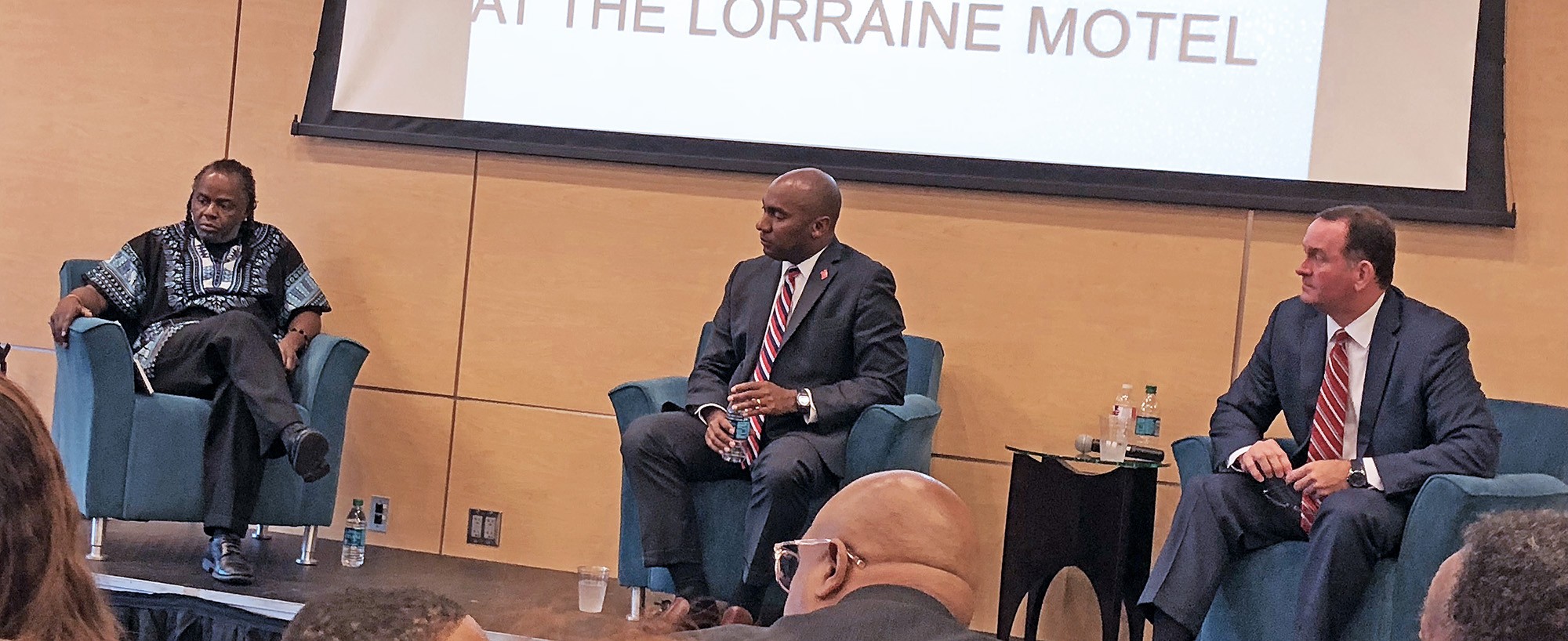 JB
JB 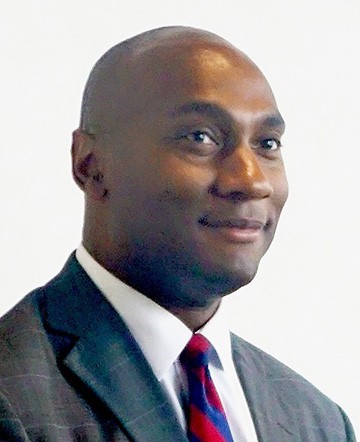 JB
JB 